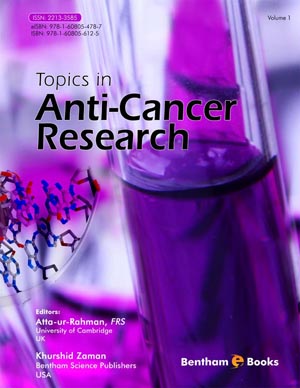Abstract
Renal cell carcinoma (RCC) represents 5% of adult epithelial cancers and clear cell RCC is the most frequent histological subtype. Improved understanding of the molecular pathways implicated in the RCC pathogenesis has led to the development of specific targeted therapies, which have better efficacy and tolerability than cytokine therapy. Seven medications have been shown to increase progression-free survival (PFS) in patients with metastatic clear cell RCC: bevacizumab, sorafenib, sunitinib, pazopanib, axitinib, everolimus and temsirolimus. Bevacizumab (+ interferon-alpha), sunitinib, temsirolimus (in poor-risk groups) and pazopanib have proven to be effective as first-line palliative treatments. Sorafenib, everolimus, and axitinib have demonstrated benefits in patients who have failed prior therapy. This chapter provides a comprehensive patent review of the new targeted therapies currently available in clinical practice to treat patients with metastatic unresectable RCC and discusses these drug-associated complications.
Keywords: Angiogenesis, axitinib, bevacizumab, biomarker, carcinoma, clear cell, combination, everolimus, hypertension, inhibitors, pazopanib, renal, sequential, sorafenib, sunitinib, targeted therapy, temsirolimus, toxicities, tyrosine kinase.






















